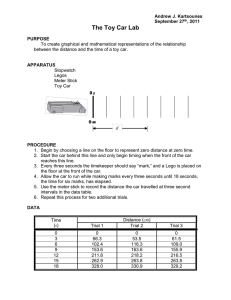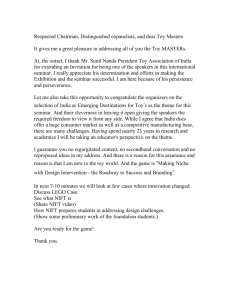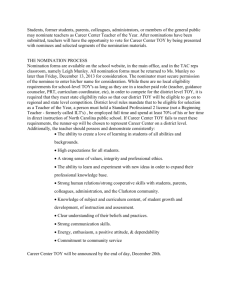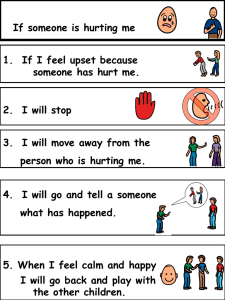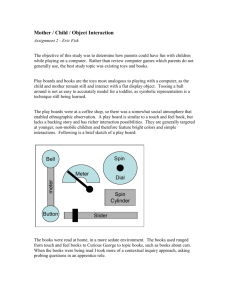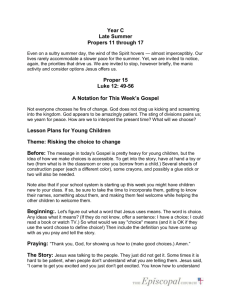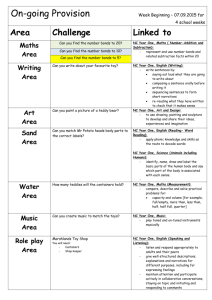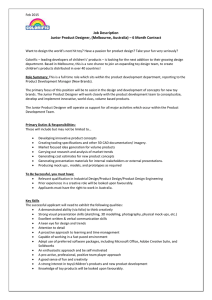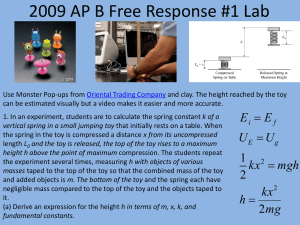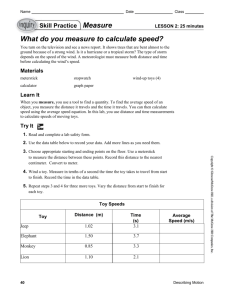Disappointment. It`s a Good Thing. It`s no secret that we live in a time
advertisement
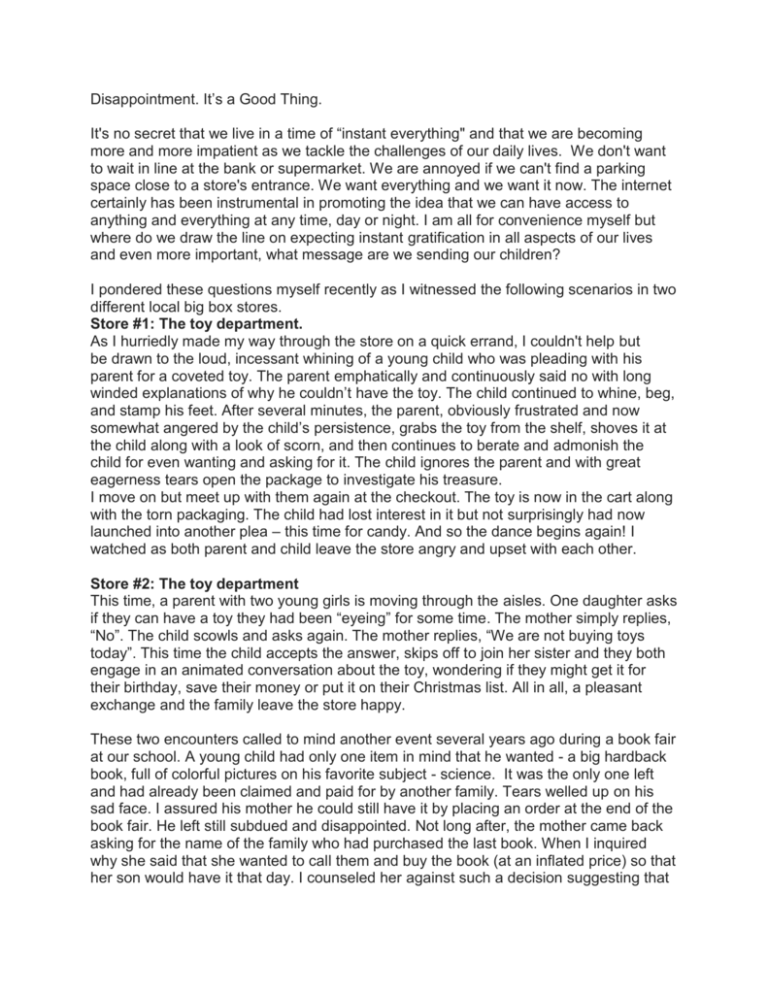
Disappointment. It’s a Good Thing. It's no secret that we live in a time of “instant everything" and that we are becoming more and more impatient as we tackle the challenges of our daily lives. We don't want to wait in line at the bank or supermarket. We are annoyed if we can't find a parking space close to a store's entrance. We want everything and we want it now. The internet certainly has been instrumental in promoting the idea that we can have access to anything and everything at any time, day or night. I am all for convenience myself but where do we draw the line on expecting instant gratification in all aspects of our lives and even more important, what message are we sending our children? I pondered these questions myself recently as I witnessed the following scenarios in two different local big box stores. Store #1: The toy department. As I hurriedly made my way through the store on a quick errand, I couldn't help but be drawn to the loud, incessant whining of a young child who was pleading with his parent for a coveted toy. The parent emphatically and continuously said no with long winded explanations of why he couldn’t have the toy. The child continued to whine, beg, and stamp his feet. After several minutes, the parent, obviously frustrated and now somewhat angered by the child’s persistence, grabs the toy from the shelf, shoves it at the child along with a look of scorn, and then continues to berate and admonish the child for even wanting and asking for it. The child ignores the parent and with great eagerness tears open the package to investigate his treasure. I move on but meet up with them again at the checkout. The toy is now in the cart along with the torn packaging. The child had lost interest in it but not surprisingly had now launched into another plea – this time for candy. And so the dance begins again! I watched as both parent and child leave the store angry and upset with each other. Store #2: The toy department This time, a parent with two young girls is moving through the aisles. One daughter asks if they can have a toy they had been “eyeing” for some time. The mother simply replies, “No”. The child scowls and asks again. The mother replies, “We are not buying toys today”. This time the child accepts the answer, skips off to join her sister and they both engage in an animated conversation about the toy, wondering if they might get it for their birthday, save their money or put it on their Christmas list. All in all, a pleasant exchange and the family leave the store happy. These two encounters called to mind another event several years ago during a book fair at our school. A young child had only one item in mind that he wanted - a big hardback book, full of colorful pictures on his favorite subject - science. It was the only one left and had already been claimed and paid for by another family. Tears welled up on his sad face. I assured his mother he could still have it by placing an order at the end of the book fair. He left still subdued and disappointed. Not long after, the mother came back asking for the name of the family who had purchased the last book. When I inquired why she said that she wanted to call them and buy the book (at an inflated price) so that her son would have it that day. I counseled her against such a decision suggesting that it was okay for her son to be disappointed and that he could still order the book the next day. After some thought she agreed. Guess what - the next day his interest in the book had waned and they never did place the order. Parents often see their acquiescence to their child’s desire for immediate gratification as an expression of love. What we are really doing is avoiding the discomfort that results from saying no to our child - we don't want to disappoint them. But disappointment is a part of life a fact that we know only too well as adults. So please parents, disappoint your children - at least occasionally. They will be all the better for the experience.
